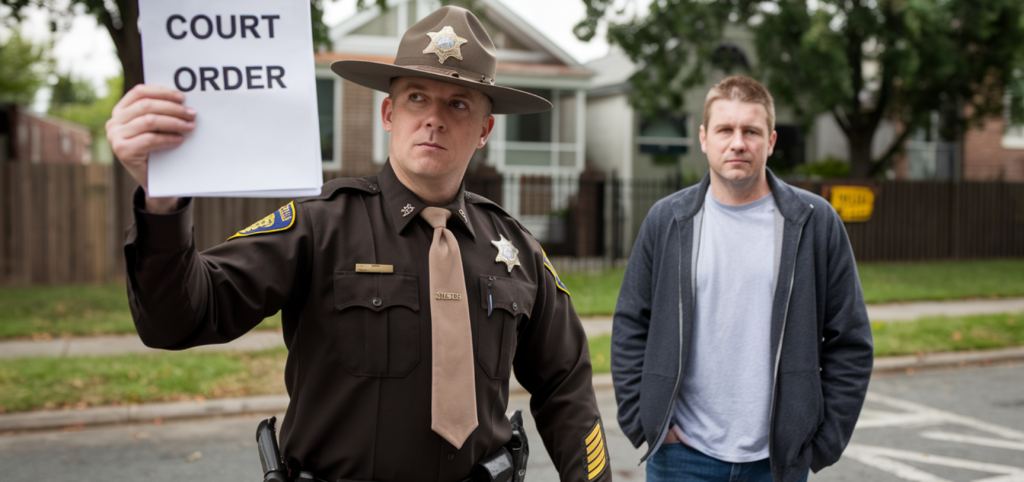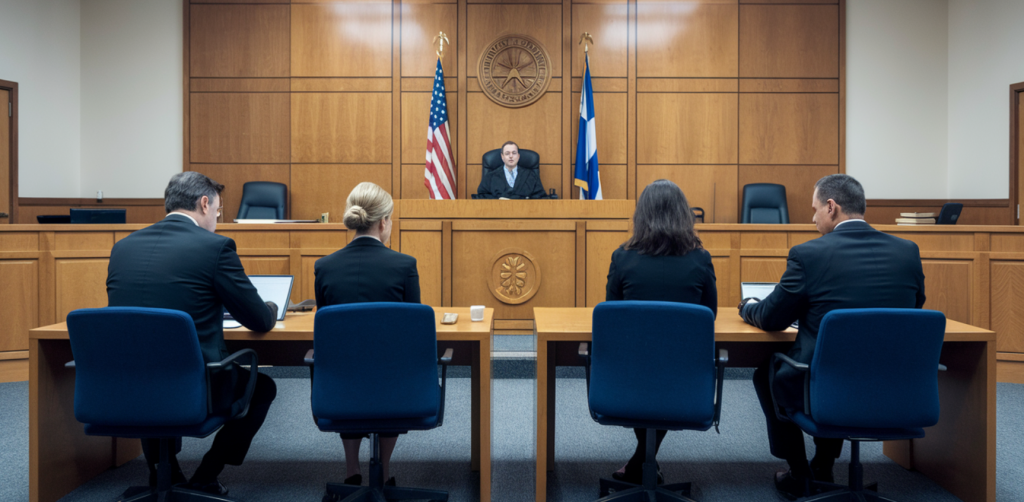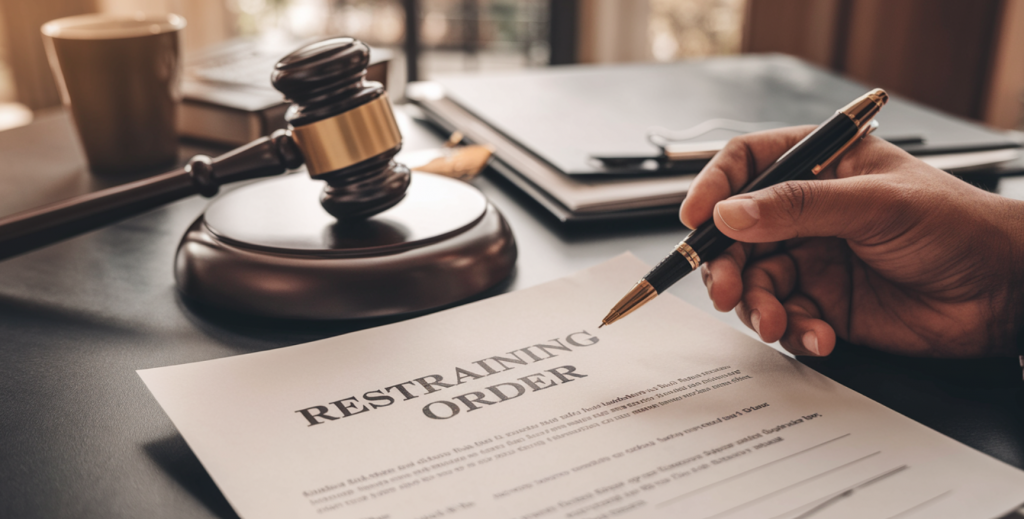Requesting a Judge Drop a No-Contact Order
Defendants charged with felonies or misdemeanors involving an alleged victim will likely be ordered not to contact them. However, the no-contact order can be dropped.

When Does a Court Order No-Contact with a Victim
The first hearing in a felony or misdemeanor case is called an arraignment. At the arraignment, the judge or magistrate advises the defendant of their charges and sets bail or bond. If the defendant posts the bond (or is released on a personal recognizance bond), the judge will order them to do or not do various things, called “bond conditions.” A typical condition of a bond is not to have any contact with a known victim. A motion is necessary to request that a judge drop a No-Contact Order. Examples of cases where these types of prohibitions are common include the following:
- a spouse, romantic partner, or family member in a domestic violence case,
- a company in a retail fraud case,
- a person allegedly harmed in an elderly abuse offense,
- a child in a child abuse case, or
- the person allegedly assaulted in a criminal sexual conduct charge.
No-Contact Orders as Part of Probation
When someone is convicted of a crime, the judge sentences them to probation, incarceration, or a combination of imprisonment and probation supervision. Probation conditions include things such as restricted travel, no consumption of alcohol or illegal drugs, and a prohibition against the possession of firearms. If there are one or more known victims, the judge will order the defendant not to have direct or indirect contact with that person or persons. For example, in a spousal abuse case, the judge will likely require the defendant to vacate the marital home and have no contact with their husband or wife. Michigan judges sometimes make exceptions for transfers necessary for visitation with children, occasionally requiring the children’s transfer at a police department. A request to drop a no-contact order can succeed if the defense lawyer can persuade the judge that the complaint favors the modification and is not in danger.

How to Get a No Contact Provision Dropped
The proper procedure for terminating or dropping a no-contact provision is for the defense lawyer to file a Motion to Modify Bond or Probation. In most cases, the judge will want to know if the victim consents to contact and, if so, what type of contact. If the victim opposes contact, dropping the no-contact provision is complex. Depending on the circumstances, a defense lawyer can communicate with the victim and, if they voluntarily agree, provide testimony or documents proving they do not desire a no-contact order.
The judge might disagree even if the defendant and victim want the no-contact order dropped. When the defense files a Motion to Modify Bond or Probation, the prosecutor can agree, oppose, or leave the decision to the judge’s discretion. Most prosecutors disagree and oppose these motions. Regardless of the prosecutor’s position and the concurrence of the defendant and victim, many judges are reluctant to drop no-contact provisions. A skilled, experienced defense lawyer will know how to argue for the bond or probation modification most effectively.
What if the Victim Requests Termination of a No-Contact Order
It is hard for an alleged victim to know how to proceed when they desire contact with the defendant or want to drop domestic violence charges. Although their first inclination is to talk with the prosecutor and request they drop the no-contact order, that approach almost always fails and often backfires. Prosecutors seldom cooperate with dropping no-contact provisions and, when approached, either talk them out of the request or elicit information they can use to oppose the request. Suppose the victim is represented by a private victim’s advocate (as opposed to one who works for the prosecutor or court). In that case, the victim’s advocate will coordinate with the defense lawyer to file a motion. An unrepresented victim (also known as a complainant) has limited options. They can directly contact the defense lawyer if they choose; however, many defense attorneys will be apprehensive when discussing these issues. Victims are rarely permitted to speak directly to the judge and, if permitted, only when the defendant, defense attorney, and prosecutor are present.

Prohibited Contact With Witnesses
Although less common, judges sometimes order defendants not to have contact with witnesses. Arguably, such an order might violate a defendant’s rights under the 6th Amendment. A no-contact order does not prevent a defense lawyer from interviewing or discussing the case with witnesses, even those named on the prosecutor’s witness list or in the police report. It is always appropriate for a lawyer to speak with a witness to determine what they will say if called to testify. A conviction could be reversed on appeal if a judge declines to drop a no-contact order so that defense counsel can interview witnesses or the victim.
Penalty for Violating Court Orders
A defendant who violates a no-contact order, directly or indirectly, faces the possibility that the judge will revoke or modify their bond. If the judge revokes the defendant’s bond, they remand the defendant into custody until the conclusion of the prosecution. The judge might choose an intermediate sanction, such as a warning, increasing the bond, adding an electronic tether or house arrest, prohibiting computer or smartphone usage, etc.

Attorneys Who Are Ready, Willing, and Able to Help
The Defense Team with LEWIS & DICKSTEIN, P.L.L.C. has decades of experience successfully representing clients charged with felonies and misdemeanors. We’ve effectively moved for the removal of bond and probation no-contact provisions thousands of times. Additionally, our lawyers act as private victims’ advocates when hired by a complainant seeking to drop a no-contact order or regarding any issue. Call us for a free consultation if you have questions regarding modifying a bond or bail condition or the terms of probation. We can help even when there is a harsh prosecutor who doesn’t care about the complainant’s wishes or a tough judge who is reluctant to permit contact. We will find a way to help you.
Call us today at (248) 263-6800 for a free consultation or complete an online Request for Assistance Form. We will contact you promptly and find a way to help you.














